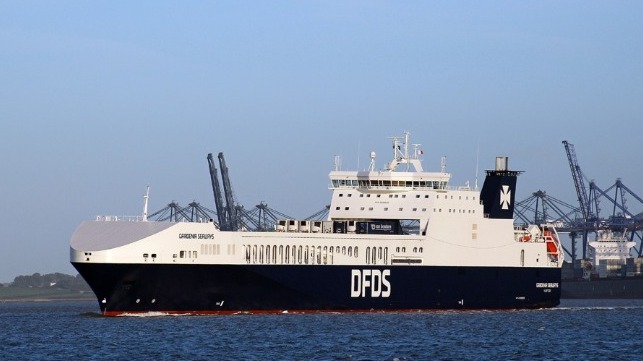DFDS Becomes Latest Shipping Company to Release Climate Action Plan

Joining other major shipping lines, DFDS, the European ferry and logistics company, has published its climate action plan laying out its goals to become climate neutral by 2050. The company issued both short- and long-term steps that it will take to meet its goals.
According to its estimates, DFDS emitted around two million tons of CO2 into the atmosphere in 2019. Ninety percent of the emissions came from the company’s ferries that transport passengers and cargo primarily in Northern Europe sailing in the Baltic, North Sea, and English Channel as well as the Mediterranean. The remainder of the emissions came from the shoreside logistics operations.
“I am very happy that we now have an ambitious and comprehensive climate action plan in place. It clearly states how we can and will take responsibility for the environment. The plan will also help us stay relevant as a provider of ferry and logistics services for both freight customers and passengers in the coming decades,” said Torben Carlsen, CEO of DFDS.
In the first phase of its efforts, the company is targeting a 25 to 35 percent reduction in emissions to be achieved between 2019 and 2030. This would equate to a total reduction of 45 percent in GHG emissions by 2030 from a 2008 baseline. In total, they are planning 29 technical initiatives for the ferry fleet ranging from bulb and propeller modifications to anti-fouling treatment of their hulls. In addition, they will also be employing decision support systems to enhance fuel performance.
The longer-term plan focuses on the adoption of a new generation of zero-emission fuel for the ferry fleet to replace the current fossil fuels. The new fuels will be sustainable as they will consist of renewable energy stored in the form of ammonia, hydrogen, or methanol. The goal is to both retrofit newer ferries as well as develop new generations of ferries that will be powered by the new fuels.
DFDS recognizes that these new fuels will require new processes for their use as well as storage and handling. As such, it says that projects and partnerships have already initiated to learn more, develop processes, and share knowledge. DFDS has also announced plans to participate in the construction of a hydrogen factory.
While it is a small part of the company’s emissions, DFDS will also aim to reduce emissions from third-party hauler trucks as well as its own trucks and equipment used in port terminals. One initiative will focus on the use of electric trucks. Plans also include addressing the energy consumption for buildings and the company’s car policy.

that matters most
Get the latest maritime news delivered to your inbox daily.
DFDS notes that these initiatives will be done in collaboration with key suppliers to reduce the environmental impact.
